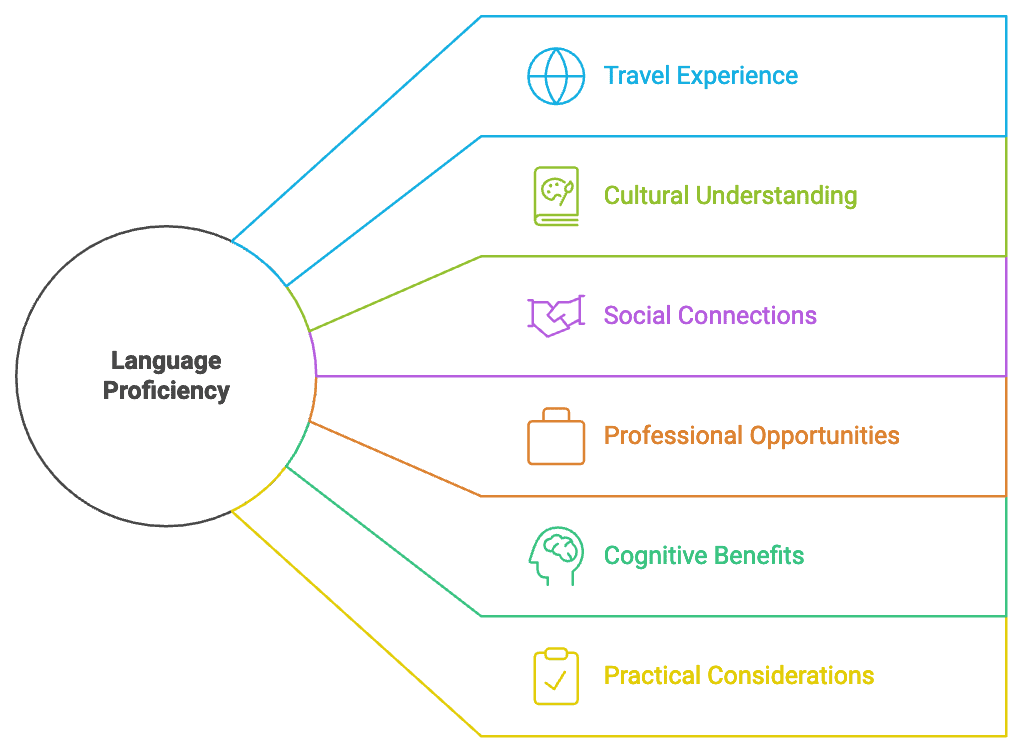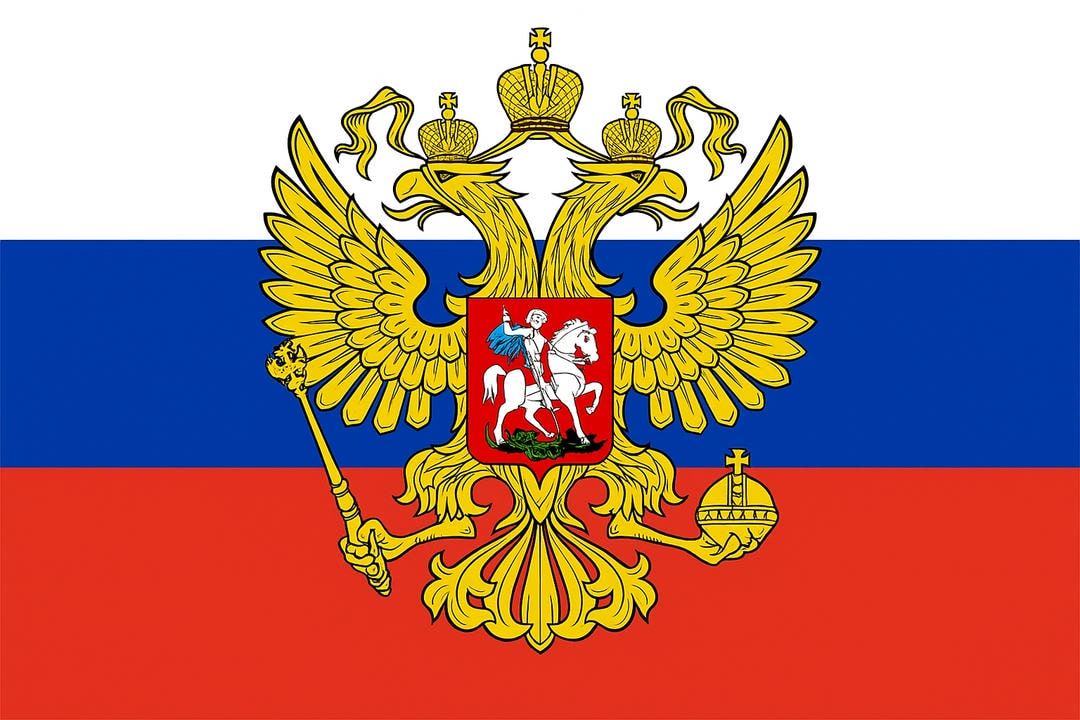The acquisition of Russian language skills holds substantial significance for both travelers and expatriates due to its utility in maneuvering through diverse cultural and logistical landscapes.
As one of the most widely spoken languages globally, Russian provides access to a plethora of historical and contemporary contexts that enhance the experience of residing or traveling in Russian-speaking regions.
Often, the significance of learning Russian for travelers and expatriates is underestimated, yet its utility is profound. Engaging in language immersion not only enhances travel confidence but also facilitates cultural adaptability.
Understanding Russian enables seamless navigation through complex local customs, fostering an authentic connection with the community. This linguistic competence serves as a bridge, transforming travel experiences into opportunities for personal growth.
For expatriates, mastering Russian is imperative for professional integration and social inclusion, which are critical for long-term success. The theoretical underpinning of acquiring a new language lies in its capacity to reshape cognitive frameworks, allowing individuals to perceive and interact with their environment more effectively.

Enhanced Travel Experience
In the domain of international travel, acquiring a fundamental understanding of the Russian language can remarkably enhance communication with locals, thereby reducing the dependency on English.
Language barriers often impede genuine interactions; consequently, gaining conversational fluency in Russian is essential. Knowledge of local dialects and cultural idioms not only facilitates smoother exchanges but also demonstrates respect for the cultural nuances inherent in daily communication.
Incorporating practical vocabulary into one’s linguistic repertoire can considerably minimize misunderstandings and foster a more immersive experience. Theoretical insights suggest that effective communication in a local language leads to authentic connections, enriching the travel experience.
Ultimately, this linguistic proficiency empowers travelers to engage more deeply with the community, offering insights beyond the superficial level accessible through English alone.

Cultural Understanding
Russian literature, often celebrated for its profound psychological depth and philosophical insight, offers a unique lens through which to explore the human condition. The works of Russian authors such as Dostoevsky and Tolstoy investigate complex literary themes, including morality, existentialism, and the societal fabric.
Mastery of the Russian language grants access to the original texts, allowing readers to appreciate the intricate narrative techniques and poetic styles employed. Understanding these works in their native language provides a richer comprehension of the cultural context, as translations may inadvertently alter nuances.
Beyond literature, the acquisition of the Russian language opens doors to an intricate tapestry of customs and traditions deeply embedded in the nation’s cultural identity.
Developing cultural sensitivity through language proficiency enhances one’s ability to navigate non-verbal communication cues, such as gestures and facial expressions, which are essential in Russian social interactions. Understanding traditional greetings, like the firm handshake coupled with direct eye contact, signifies respect and trust.
Mastery of local etiquette, including the appropriate use of titles and forms of address, is vital in both personal and professional settings. In addition, language fluency enriches one’s experience of festive celebrations, allowing for meaningful participation in rituals and practices that reflect the rich history and culture of Russia.
Social Connections
Understanding a language is not merely about mastering vocabulary and grammar; it is a powerful tool for establishing meaningful connections with people. Engaging in language exchange allows individuals to partake in authentic communications, fostering deeper interactions during social gatherings.
When visiting or moving to Russia, speaking the language provides access to community involvement opportunities, facilitating a shared exploration of local customs. This shared linguistic platform enables individuals to discover common interests, laying the groundwork for lasting friendships.
The capacity to speak Russian not only facilitates forming relationships but also distinguishes travelers in a unique manner. Engaging in the local language fosters cultural exchange, allowing visitors to partake in unique experiences inaccessible to monolingual individuals.
This linguistic skill enhances traveler confidence, empowering them to navigate social landscapes with ease. Speaking Russian often leads to memorable encounters, as locals appreciate the effort and respect demonstrated through language proficiency.
Such interactions are not merely transactional but are imbued with depth, offering insights into cultural nuances. Consequently, travelers are perceived as more invested in understanding and appreciating the host culture, thereby solidifying their status as distinguished guests.
To summarize, mastering Russian offers tangible benefits, enhancing both personal and social travel experiences.
Professional Opportunities
Proficiency in Russian greatly enhances career advancement prospects, particularly in sectors such as international business, where linguistic skills facilitate cross-border negotiations and cultural understanding.
This linguistic capability also strengthens networking potential, fostering robust professional relationships within Russia and other Russian-speaking regions, which are critical in markets with distinct socio-economic dynamics.
As globalization continues to shape the modern economy, possessing language skills beyond one’s native tongue—particularly in Russian—can greatly bolster career prospects across various sectors.
In the job market, proficiency in Russian meets the rising industry demand for multilingual professionals, especially within international business. This linguistic capability provides a competitive advantage, positioning candidates favorably against peers, and enhancing their global connections.
Mastery of Russian can lead to significant salary benefits, as businesses value employees who can navigate and negotiate within Russian-speaking markets.
Possessing the ability to communicate in Russian opens a gateway to nurturing robust professional relationships across Russia and other Russian-speaking countries. Understanding business etiquette is essential, as it facilitates smoother interactions within local industries.
Mastery of the Russian language enhances participation in networking events, allowing one to engage more effectively with potential collaborators and industry leaders. Such linguistic competence fosters deeper cultural integration, a fundamental element in establishing trust and credibility in professional networking.
Engaging meaningfully with Russian-speaking professionals provides unique insights into regional business practices and opportunities. Consequently, fluency in Russian not only enriches professional exchanges but also strategically positions individuals to capitalize on emerging market trends, thereby enhancing their professional influence and success within these dynamic economies.
Cognitive Benefits
The intricacies of Russian language acquisition serve as a powerful tool for cognitive enhancement, offering substantial mental stimulation. Engaging with such a complex linguistic system fosters cognitive flexibility by necessitating the navigation of unfamiliar grammatical structures and vocabulary.
This process inherently bolsters memory enhancement, as learners must recall and apply new information consistently. Moreover, the analytical nature of Russian grammar encourages the development of sophisticated problem-solving techniques, as learners continuously decipher and construct meaning.
Mastery of Russian serves as a robust foundation for acquiring additional languages, due to the cognitive mechanisms it activates. Engaging with Russian involves deep language immersion, which enhances neural pathways responsible for language processing.
This immersion facilitates language transfer, allowing learners to more readily acquire new linguistic systems. Russian’s complex linguistic roots sharpen analytical skills, making the identification of grammatical structures in other languages more intuitive.
Furthermore, the cognitive advantages gained extend beyond linguistic boundaries, enhancing memory and problem-solving capabilities. The familiarity with diverse phonetic patterns and syntax in Russian contributes to future fluency in other Slavic languages and beyond.
Consequently, mastering Russian equips individuals with skills conducive to lifelong language acquisition, broadening their global communication capabilities.
Practical Considerations
In considering the practical aspects of learning Russian, it is important to note that a significant portion of the Russian population has limited proficiency in English, highlighting the necessity for effective communication through knowledge of the local language.
Maneuvering linguistic barriers becomes an essential aspect when considering communication in Russia, where English proficiency remains relatively limited.
According to EF English Proficiency Index, Russia ranks low in global English proficiency levels, with only a small percentage of the population possessing conversational skills. This scenario presents considerable communication barriers for travelers and expatriates.
Engaging in language immersion by learning Russian greatly enhances cultural integration and travel preparedness. Theoretical frameworks suggest that understanding the local language facilitates not only practical interactions but also deeper social connections.
Understanding the local language serves as a conduit to deeper cultural immersion, enabling access to experiences often overlooked by those who rely solely on translation.
Proficiency in Russian reveals the subtle nuances embedded in regional dialects, offering insights into local customs and traditions. Engaging with local cuisine, for instance, becomes a richer experience when one can converse with chefs about recipes that reflect regional specificity.
Similarly, participation in traditional festivals allows for a more authentic engagement when one understands the cultural narratives conveyed through language.
Additionally, knowledge of Russian paves the way to discovering hidden attractions, often known only to locals, thereby enriching the travel experience.
Exploring the cultural landscape of Russia through its language enriches the travel or relocation experience while also serving practical needs.
Language immersion is fundamental for maneuvering daily life, from understanding regional dialects to engaging effectively with expatriate communities. Proficiency in Russian enhances travel safety by enabling clear communication in emergencies and understanding local norms.
Furthermore, it provides access to authentic local cuisine, as ordering food and interpreting menus often require linguistic competence. Theoretical frameworks suggest that language acquisition fosters deeper cultural integration, consequently benefiting both temporary visitors and permanent residents.
Essentially, learning Russian equips individuals with essential tools for a more secure, informed, and enriched stay in Russia, bridging cultural gaps and facilitating smoother interactions with locals.





